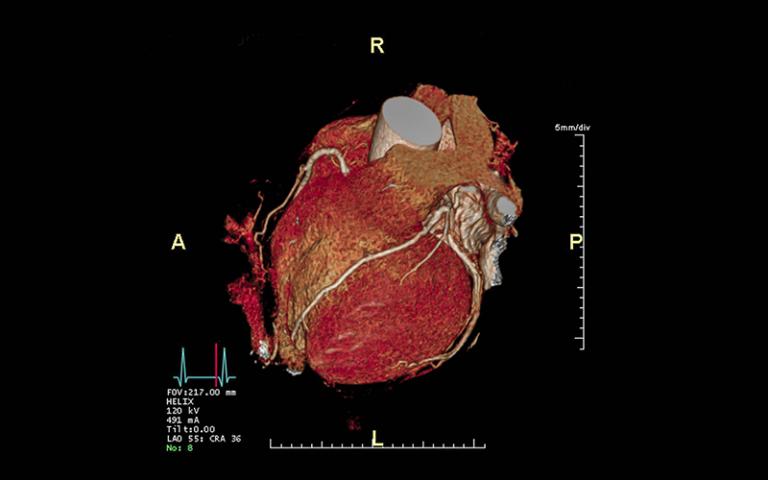Big data insights on heart disease help millions to live longer, healthier lives
UCL’s Professor Harry Hemingway used large-scale health records data to gain important insights into the diagnosis and treatment of cardiovascular diseases, driving changes in the UK and worldwide.

28 April 2022
Harnessing the unique power of large-scale patient data, Professor Harry Hemingway (UCL Institute of Health Informatics) has gained important new insights into some of the world’s biggest causes of death worldwide: high blood pressure, coronary disease, atrial fibrillation and heart attack. His work has shaped national and clinical guidelines, leading to better care and longer lives for millions of people.
Preventing over 300,000 strokes
Evidence from Professor Hemingway’s research using large cohorts, has informed new, lower blood pressure thresholds for more accurate diagnosis of hypertension, changing international clinical guidelines for managing the disease. Now, 13% more US adults – 4.2 million people – are being diagnosed and treated than before, reducing their risk of heart attack and stroke.
In addition, a study of 70,000 atrial fibrillation patients’ electronic health records found that the anticoagulant warfarin confers net clinical benefit at a higher risk of stroke in women than it does in men. This has directly informed a change in clinical recommendations. An estimated 340,000 strokes in women across Europe have been prevented, following a change in the European Society of Cardiology’s atrial fibrillation guidelines to avoid warfarin treatment in women at high risk of stroke.
Better care for coronary disease
Regulatory approval of ticagrelor, a new blood-thinning drug for preventing heart attacks, has been informed by Hemingway’s use of big data to provide the first real-world evidence of its efficacy. Using health records in England, USA, Sweden and France, he was the first to study one-year survivors of heart attack, using clinical data on care and outcomes across international borders. The work showed that there was an unmet need for heart attack prevention even after three years, and that ticragrelor was effective for achieving it.
Hemingway’s finding that CT angiography can more accurately detect coronary disease in people with non-emergency chest pain has directly changed NICE guidelines to make this the standard way to diagnose the disease rather than exercise ECG. Doctors can now diagnose an estimated 15,000 more people using CT angiography earlier than was previously possible, and this has prevented 1,100 cardiovascular events in the UK every year.
UK efforts to improve the care of heart attack patients have been informed by Hemingway’s comparative study of UK and Swedish patients, which revealed there could have first been 10,000 fewer UK deaths if the outcomes had mirrored those of heart attack patients in Sweden.
The benefits of data release
This research became an influential example of public good arising from public sector access to large health record datasets, with appropriate measures in place to safeguard privacy and data security. Following a meeting between the then-Health Secretary Jeremy Hunt with clinical experts, Hemingway’s research directly shaped amendments to the Care Act 2014 to allow data release only for the provision of health and social care.
Research synopsis
Big data insights on heart disease help millions to live longer, healthier lives
UCL’s Professor Harry Hemingway has used large-scale health records data to gain important insights into the diagnosis and treatment of cardiovascular diseases - some of the most common causes of death worldwide. His research has changed policy and clinical guidelines in the UK and internationally, and informed improvements in care for millions of patients.
Links
- Professor Harry Hemingway’s academic profile
- UCL Institute for Health Informatics
- UCL Faculty of Population Health Sciences
- UCL Faculty of Population Health Sciences REF 2021
Image
- Image credit: iStock / mr.suphachai praserdumrongchai
 Close
Close

